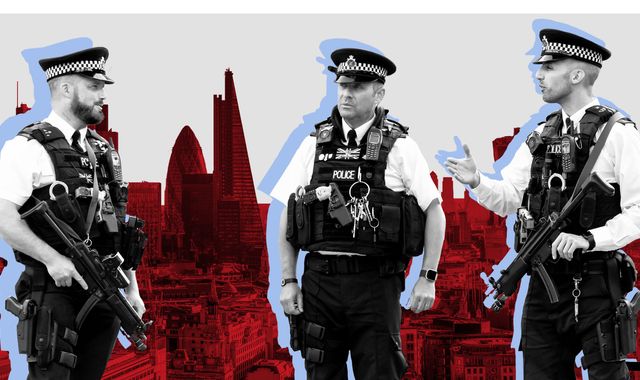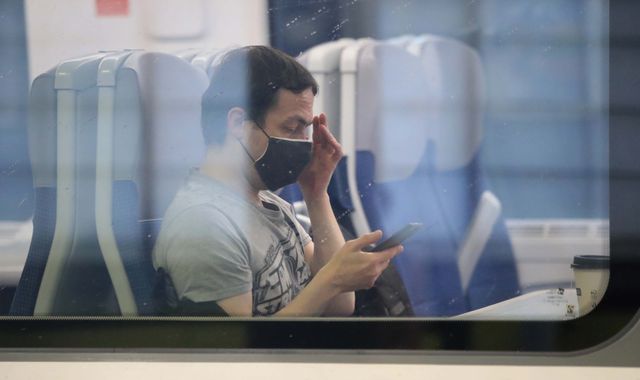Coronavirus lockdown: How cities worldwide are doing it – and what London might do next
Written by News on 19/03/2020
Tens of millions of people have found themselves under some form of lockdown because of the coronavirus pandemic – and some measures are stricter than others.


When this drastic step was introduced in Wuhan, Hubei province in China – the origin of the COVID-19 coronavirus outbreak – people across the rest of the globe were astounded.
The ripple effects of that shockwave have been far-reaching, as governments rush to stop the spread of the deadly disease and mitigate the impact of the pandemic on peoples lives and world economies.
With London now braced for a possible lockdown, here’s a look at the approaches taken by the different countries.
Wuhan, China
On 23 January – after a then-unnamed virus had killed 17 people and infected hundreds – China locked down Wuhan, a city of 11 million people.
Checkpoints, roadblocks and the suspension of all urban transport brought the coronavirus-hit megacity to a standstill.
Situated on the country’s largest river, the Yangtze, a national thoroughfare, it is one of the country’s largest transport hubs. It is twice the size of Shanghai by land area, and eight times the size of Hong Kong.
Schools and universities were shut – and while there was some panic buying, most people responded to the official advice to stay home.
It was the first time we saw people wandering desolated streets with face masks as images and videos of an entire city in lockdown were posted on social media sites.
:: Listen to the Daily podcast on Apple Podcasts, Google Podcasts, Spotify, Spreaker.
The outbreak, the first cases of which dated back to December 2019, was linked to Wuhan’s seafood market with officials warning of the severity of the mutating virus.
Chinese President Xi Jinping described the situation as “grave” and said the government was stepping up efforts to restrict travel and public gatherings in other parts of the country amid the start of the Lunar New Year.
Now, for the first time since the outbreak started, China has said there have been no new cases in Wuhan and its surrounding Hubei province in the past 24 hours.
Some restrictions have been lifted – medical staff deployed to Wuhan from across China have started returning home and more than 70,000 people have been discharged from hospital.
In fact, the country is reporting a long-awaited slowdown in the number of new cases overall.
Italy
The lockdown began in the worst-affected country in Europe on 8 March.
Around 16 million Italians were quarantined across the entire Lombardy region and 14 provinces in four other northern regions – including the financial capital Milan and the tourist hotspot of Venice.
Leaks to the media before regional civic leaders were alerted about the unprecedented decree caused widespread panic and confusion.
Packed bars and restaurants quickly emptied as people – mainly students and workers – rushed back to their apartments to grab their belongings and scrambled to the nearest railway station to head back to their homes in the south.
This is turn led to its own outcry by southern officials, who urged those heading back to think twice for fear of the virus spreading across the rest of the country.
The lockdown was soon expanded to the whole country – and it has now been extended beyond the original end date of 3 April.
Spain
It followed Italy in putting the whole country into lockdown with immediate effect from 14 March.
Spanish Prime Minister Pedro Sanchez confirmed the restrictions on the country’s 47 million citizens as part of a 15-day state of emergency.
People are only allowed to leave their homes to buy food and medicine, commute to work, or go to provide care.
All schools, universities, restaurants, bars and hotels nationwide along with non-essential stores have been shut.
The curbs are being enforced by the police and army, with violators facing fines.
“These are extraordinary times,” the PM said.
“We will (eventually) return to the routine of our jobs and again visit our friends and loved ones… Until that time comes, let’s not waste energies that are essential now. Let’s not lose our way.”
France
Some 67 million were put under lockdown on Tuesday for two weeks.
Drastic curbs on public life like in other countries have been introduced with all bars, cafes, restaurants, entertainment venues and non-essential stores told to shut. Factories are also shut.
President Emmanuel Macron said citizens can only leave their homes to buy food, go to work, seek medical care or get some exercise on their own.
Schools are only open for the children of health workers, while employers have been urged to help set up remote working for staff.
Police patrols of the streets have been stepped up to enforce the unprecedented peacetime restrictions, with checkpoints set up nationwide.
Those who breach the conditions will be fined.
Tourist hotspots including the Eiffel Tower and the Louvre museum in Paris remain deserted.
New York and Los Angeles
The mayors of both American cities on Tuesday ordered restaurants, bars and cafes to only sell food on a takeaway or delivery basis as they fight to halt the spread of COVID-19.
Bill de Blasio has also moved to close nightclubs, cinemas, theatres and concert venues.
The mayor of New York said: “This is not a decision I make lightly.
“These places are part of the heart and soul of our city. They are part of what it means to be a New Yorker. But our city is facing an unprecedented threat, and we must respond with a wartime mentality.”
It is unclear how long the businesses in the state will remain closed.
Similarly in Los Angeles, Mayor Eric Garcetti issued an executive order on Sunday to close bars, nightclubs, entertainment venues and gyms until at least 31 March.
London
Although up to 40 Tube stations are set to close – Downing Street says there is “zero prospect” of restrictions on travel in and out of London.
Nonetheless, the prime minister has urged Britons to avoid visiting pubs and restaurants – and advised against all non-essential travel.
Boris Johnson has stressed the urgency of Londoners paying special attention to the social distancing guidance already issued to avoid confined spaces and to work from home – relieving the pressure on London’s health system and helping to slow the spread of the virus.
Streets that are normally packed stand empty, monuments appear eerily deserted and tourist attractions, museums and theatres continue to close.
Mr Johnson has said police would maintain responsibility for maintaining law and order and there are no plans to use the military for this purpose.
The government is considering closing most shops in the capital by the weekend, according to Whitehall sources, although pharmacies and supermarkets are expected to stay open under the tougher measures.
There are concerns that some in the capital and elsewhere are not taking the PM’s advice seriously enough – and a mandatory closure order for places such as pubs is still a possibility.
(c) Sky News 2020: Coronavirus lockdown: How cities worldwide are doing it – and what London might do next






